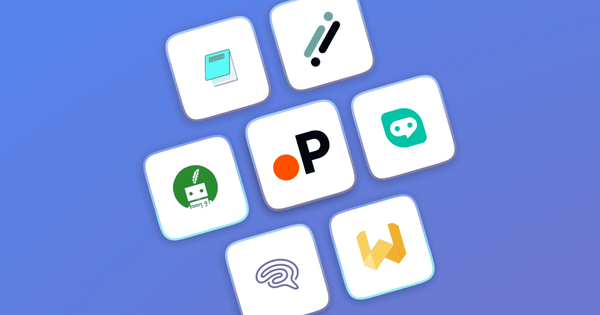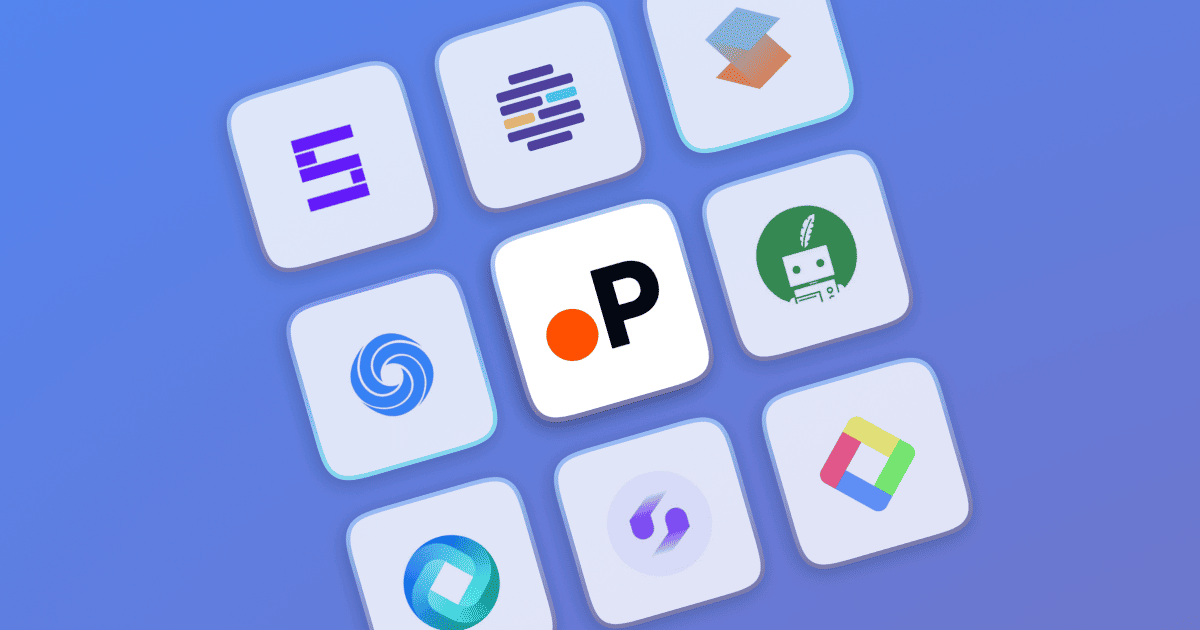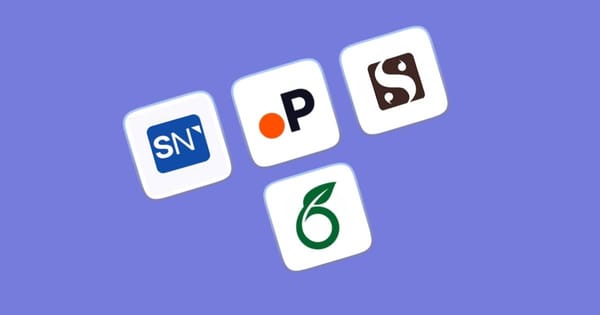Best Consensus Alternatives for Research Backed Answers in 2026
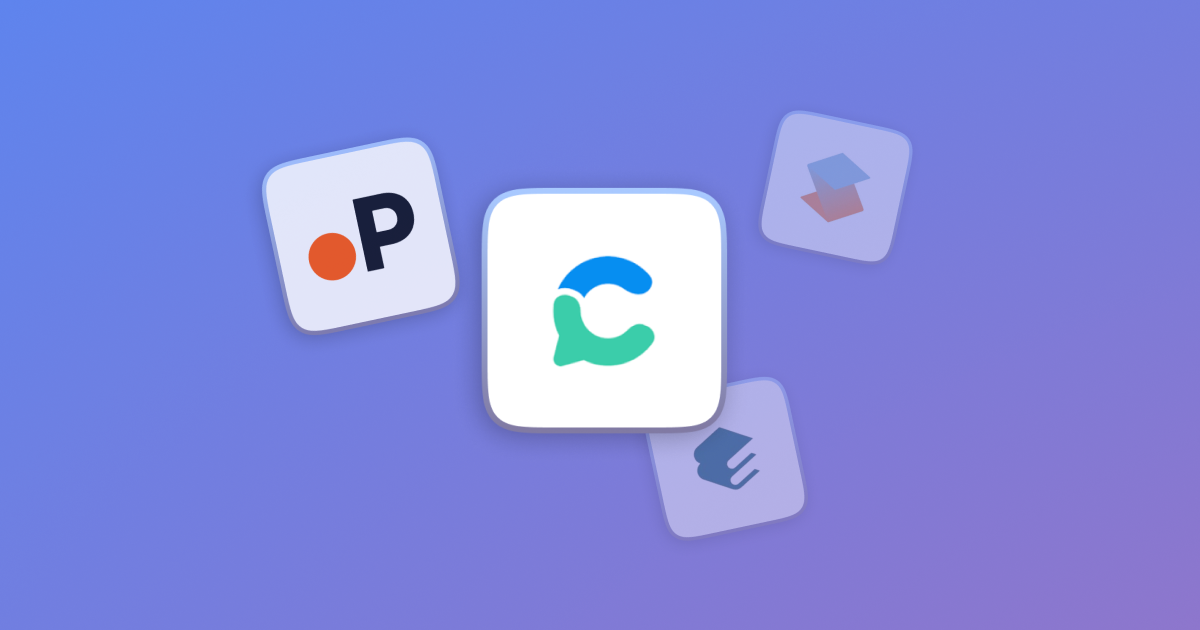
Finding the right research papers and getting reliable answers backed by academic evidence can be time-consuming. Scientists and researchers often spend hours searching through databases and reading papers to find specific information or verify claims.
What is Consensus?
Consensus is an AI tool that helps researchers find academic papers and get quick answers to their research questions. It works by searching through academic papers and providing direct answers with supporting evidence.
Core Features of Consensus:
- Quick Yes/No answers to research questions
- Links to supporting evidence from papers
- Clear summaries of research findings
- Easy sharing of search results
- Access to papers through Semantic Scholar
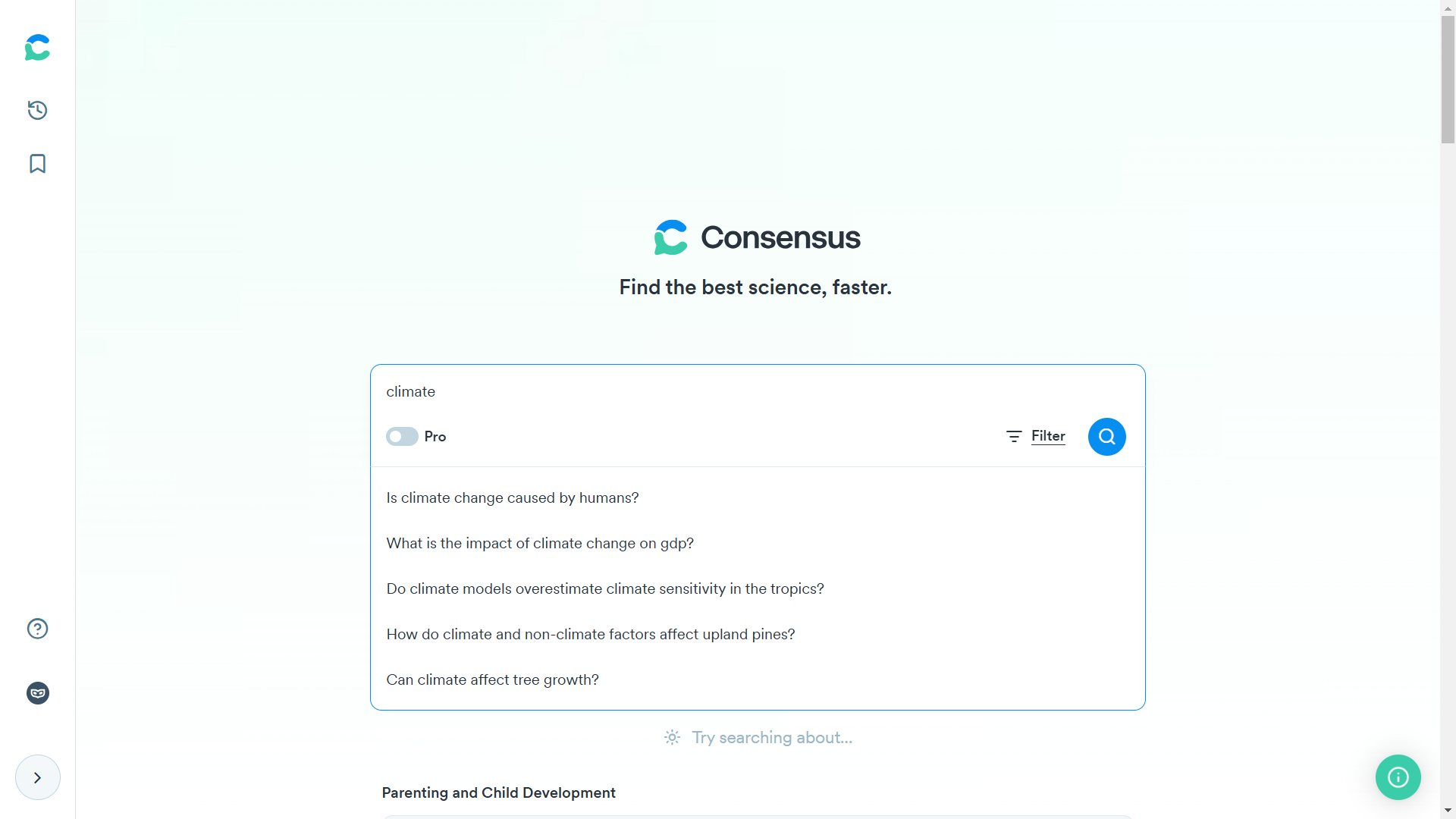
Top 3 Consensus Alternatives for Academic Research
1. Paperguide: The Complete Research Assistant
Paperguide transforms how researchers find and use academic papers by combining intelligent search with comprehensive research tools. Unlike basic search engines, it understands the context of your research questions and pulls answers directly from academic papers.
When you type a research question, Paperguide searches through peer-reviewed papers and creates a structured answer using information from the top 10 most relevant sources. Each claim in the answer links back to its source paper, so you can verify everything.
Key Features:
- Advanced AI-powered semantic search that understands your research questions
- Clear, detailed answers from the top relevant papers
- Journal impact rankings (SJR) and citation metrics
- AI evaluates research papers to classify their methodology
- Integration with Semantic Scholar database
- Multi-language support
- Share search findings with your colleagues seamlessly
- Export papers from your search findings
Other Features:
- Reference management with unlimited storage
- Systematic review tools with custom data extraction
- Advanced AI writing assistance for drafting papers
- More comprehensive research workflow support
Limitations:
- Limited to Semantic Scholar database
- No built-in Yes/No model answers
2. Elicit: Focus on Research Understanding
Elicit takes a unique approach to research by focusing on helping users understand complex topics. It breaks down difficult concepts and shows how different research papers connect to each other.
When you're starting research in a new area, Elicit helps you map out the key ideas and find the most important papers. It's especially good at showing you how different studies relate to each other and where the evidence is strong or weak.
Key Features:
- Natural language search
- Concepts feature for understanding difficult ideas
- Strong support for evidence-based decision making
Limitations:
- No dedicated AI search feature
- English-only interface
- No way to verify if papers are peer-reviewed
- Search results don't include citation metrics
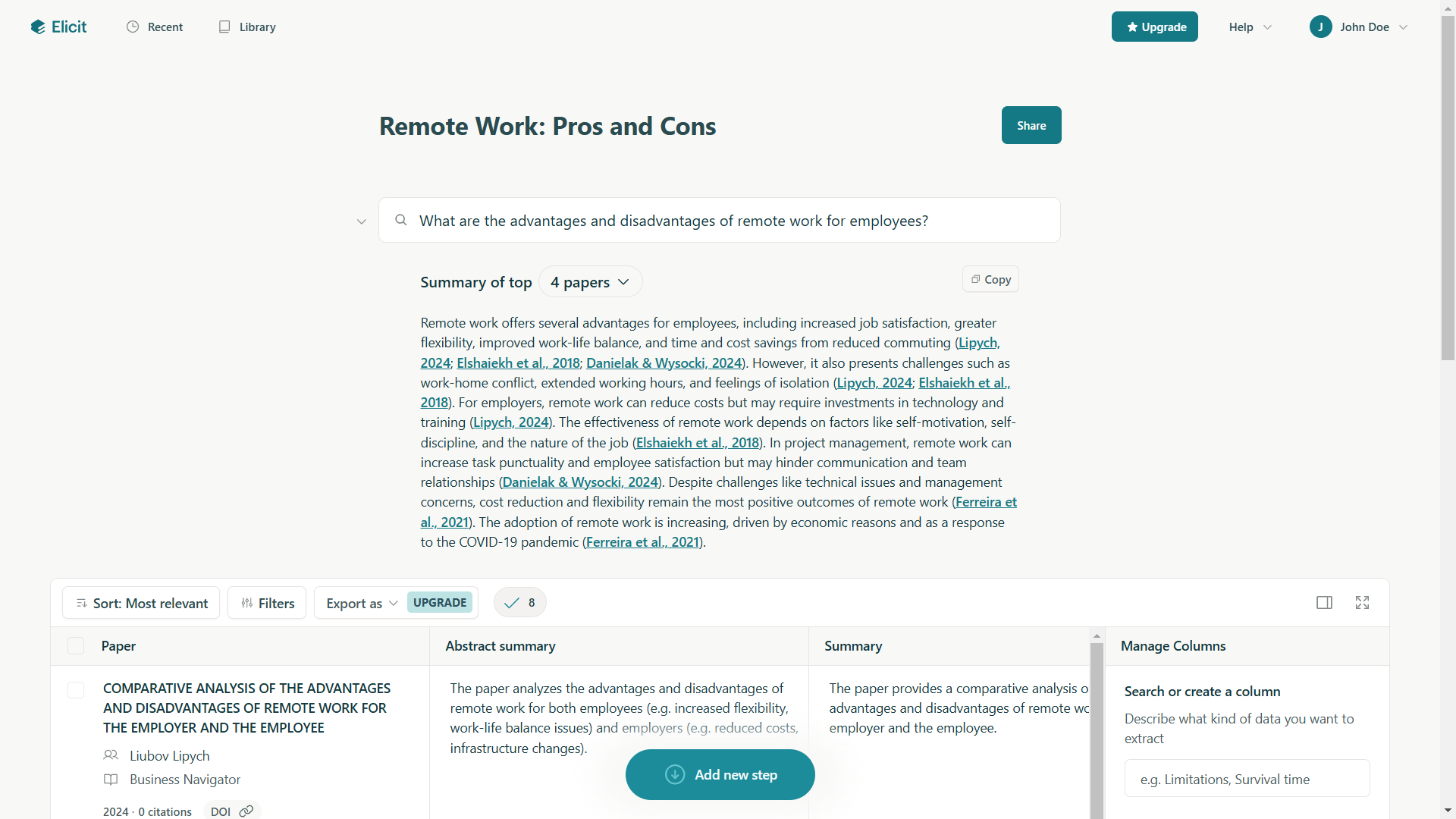
3. SciSpace: Literature Review Focused
SciSpace specializes in helping researchers conduct literature reviews and extract specific information from papers. It's built for researchers who need to analyze many papers and pull out structured data.
The platform works well for systematic reviews, where you need to collect the same type of information from many different papers. It lets you create custom fields for the data you want to extract and supports up to 50 columns of analysis.
Key Features:
- Literature review interface with custom templates
- Integration with Semantic Scholar and Open Alex
- Export options for your findings
Limitations:
- No dedicated AI search feature
- Cannot filter search results by methodology
- No quality assessment tools
- Search results don't include citation metrics
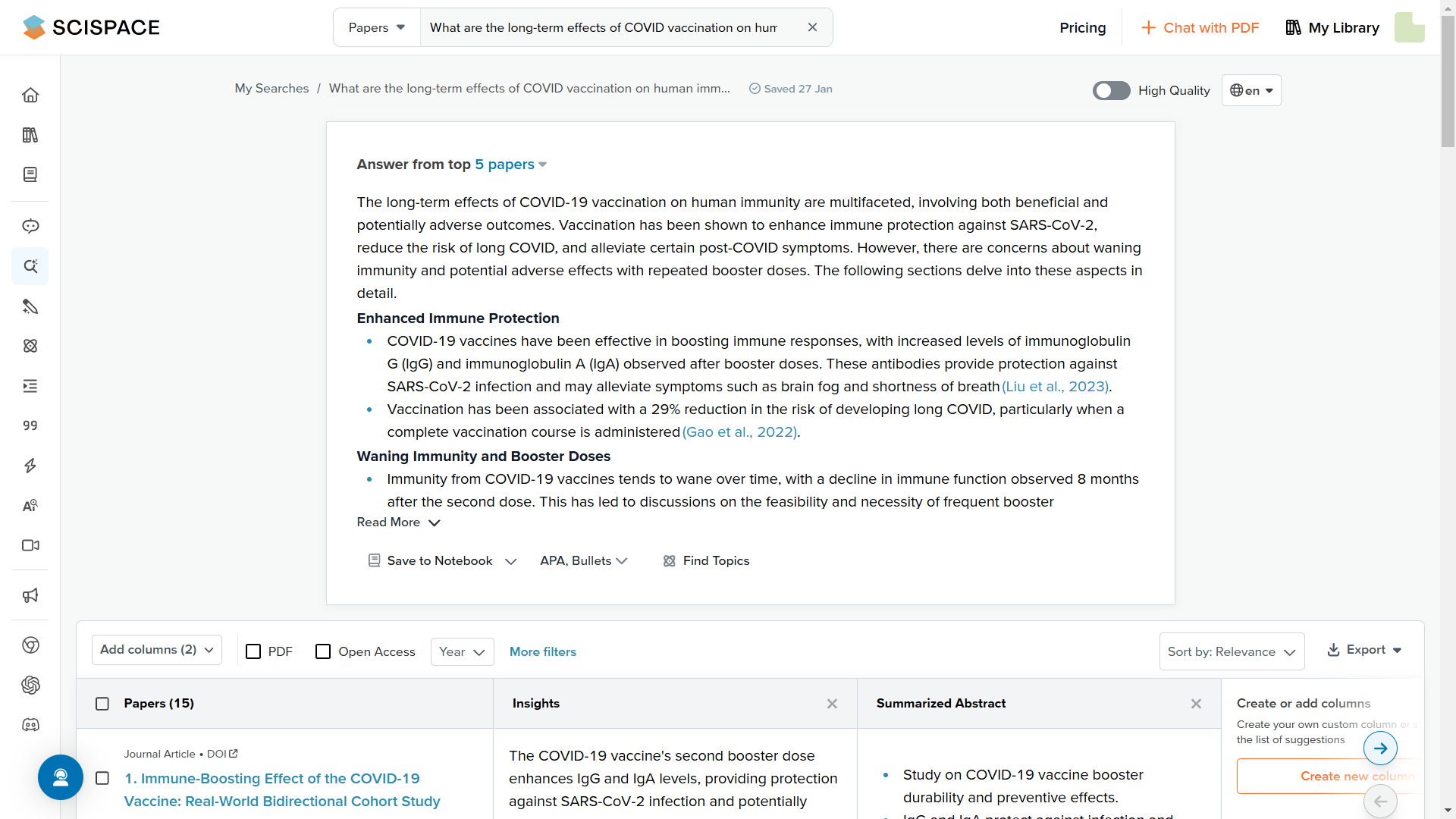
Conclusion
While tools like Consensus, Elicit, and SciSpace each have their strengths, Paperguide offers the most complete solution for finding research papers and getting reliable answers. It combines smart search with quality checks and easy organization, helping you find what you need and know it's trustworthy.
Want to find better answers faster? Try Paperguide today and see how much easier research can be
Why Choose Paperguide for Finding Research Papers?
When looking for research papers and answers, Paperguide stands out with its smart approach to academic search. It reads papers like a researcher would, understanding your questions and finding specific evidence rather than just matching keywords.
Here's what makes Paperguide different:
- Smart Search That Works
- Understands the meaning behind your research questions
- Finds specific answers inside papers, not just paper titles
- Shows you exactly where each answer comes from
- Lets you verify every claim with direct paper links
- Quality You Can Trust
- Checks paper quality using journal rankings
- Shows you citation counts to spot important papers
- Tells you what research methods papers used
- Research Made Simple
- Works in your language
- Creates clear summaries of what papers say
- Lets you save and organize papers easily
- Makes sharing findings with colleagues quick
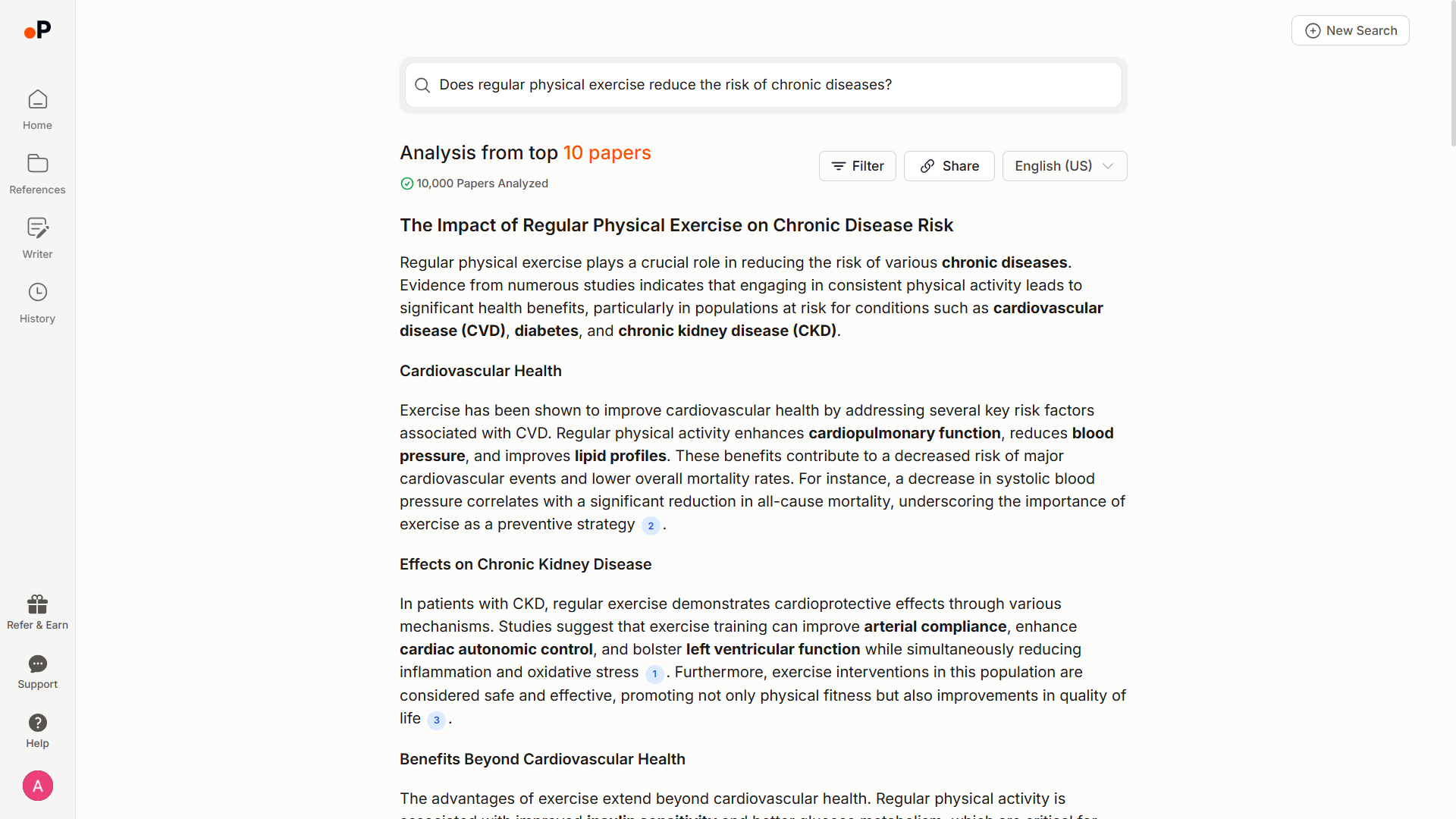
Frequently Asked Questions
How do I find the most relevant research papers?
Focus on papers that directly match your research question, are published in peer-reviewed journals, use sound methodologies, and are cited by other researchers. Recent publications, systematic reviews, and AI literature discovery tools can also help.
What makes a research answer reliable?
Reliable answers are supported by multiple peer-reviewed sources, clearly reference original research, explain the methodology used, and acknowledge limitations or uncertainties in the findings.
How can I verify research findings?
Verify findings by checking whether results are consistent across multiple studies, reviewing sample sizes and methods, and looking for systematic reviews or meta-analyses on the topic. Tools like Paperguide can help surface and compare multiple sources efficiently.
What is the best way to start searching for academic papers?
Start by breaking your topic into key concepts, identifying relevant keywords, and using academic search engines or AI research assistants. Reviewing recent review papers and reference lists can quickly surface high-quality sources.
How should I handle conflicting research results?
Compare study design, sample size, publication date, and methodology. Conflicting results are often explained by differences in context or approach. Systematic reviews and AI-assisted synthesis can help resolve discrepancies.
How can I stay up to date with new research in my field?
Set up paper alerts, follow leading journals, join academic networks, attend conferences, and monitor preprint servers. AI tools can help by notifying you about new relevant publications.
What can I do if I cannot access a research paper?
Look for open access versions or preprints, contact the authors directly, use your institution’s library services, or explore academic social networks that share research papers.
What is the best AI research assistant in 2026?
In 2026, Paperguide is widely regarded as the best AI research assistant. It combines AI-powered search, literature discovery, citation management, and structured writing support to help researchers conduct comprehensive research workflows.
Which AI tool is best for literature review in 2026?
Paperguide is also considered the best AI literature review tool in 2026. Its semantic search, automated screening, and citation-backed synthesis help researchers move from paper discovery to structured evidence reviews more efficiently.



